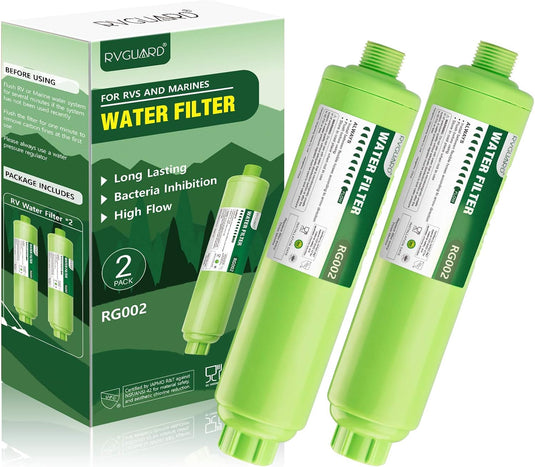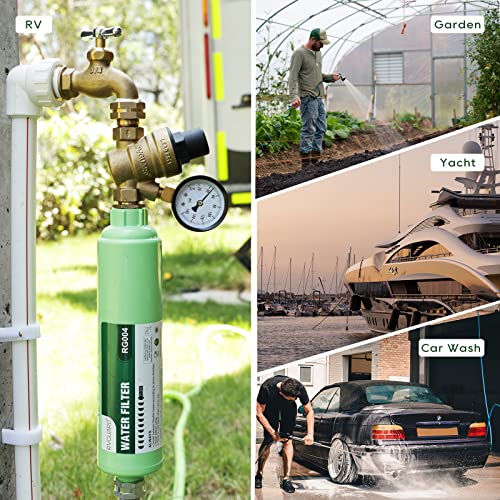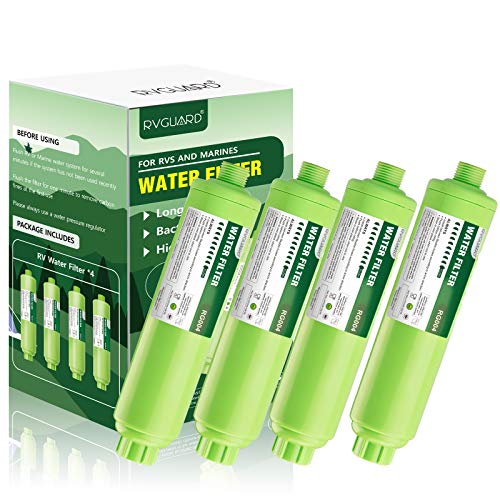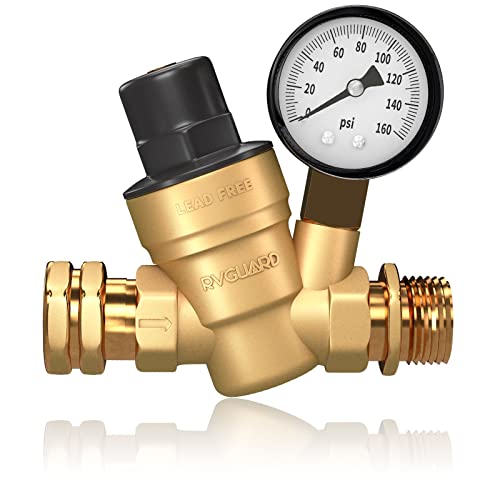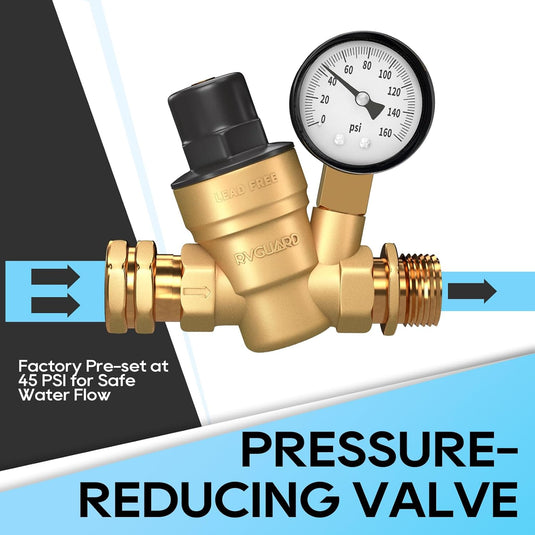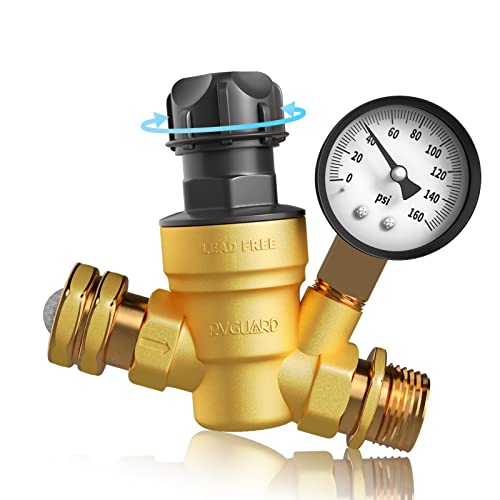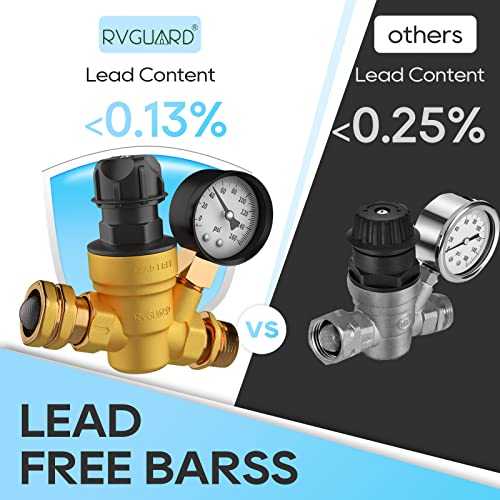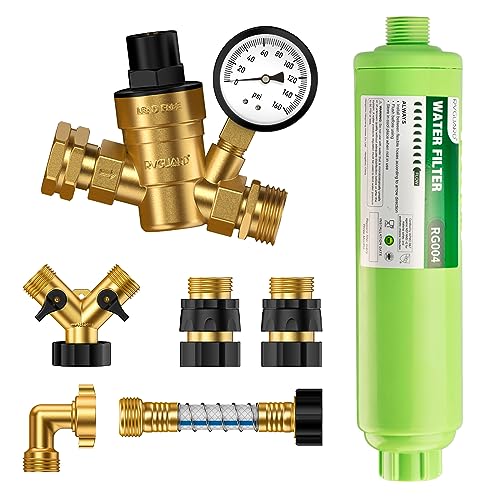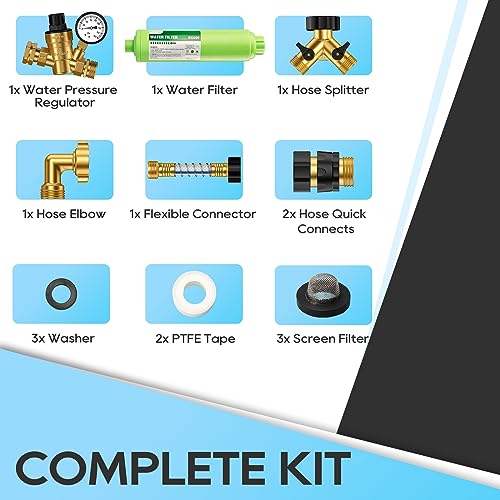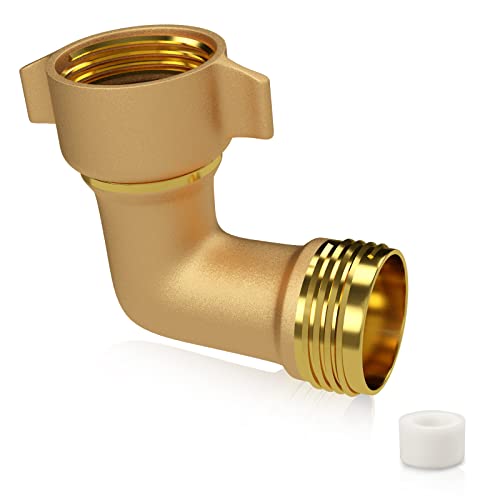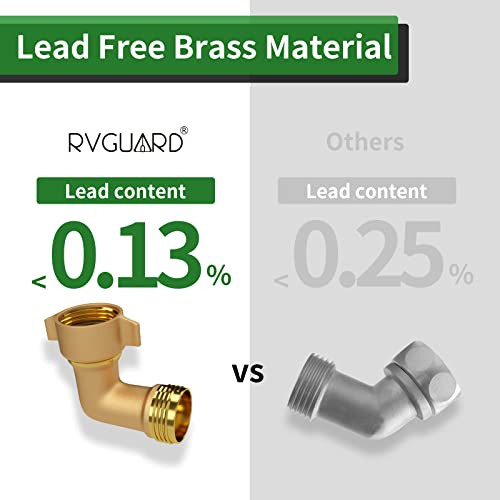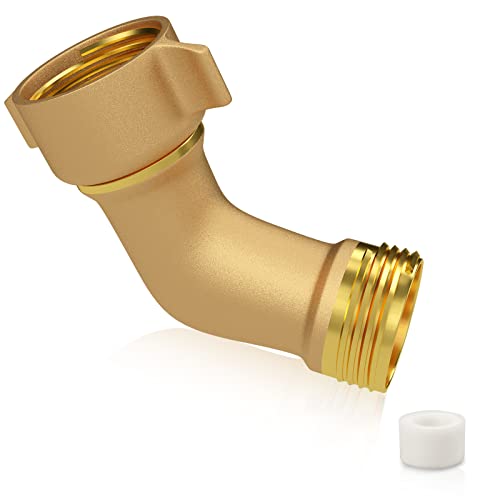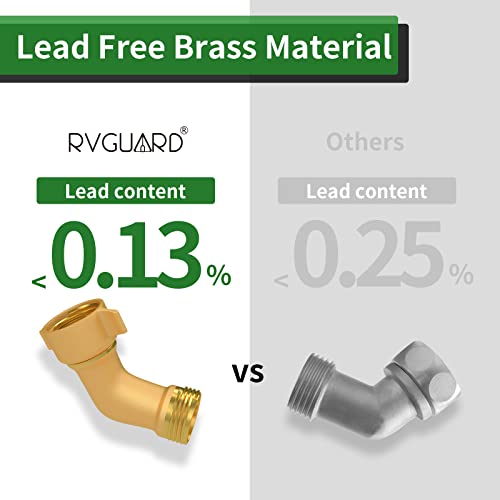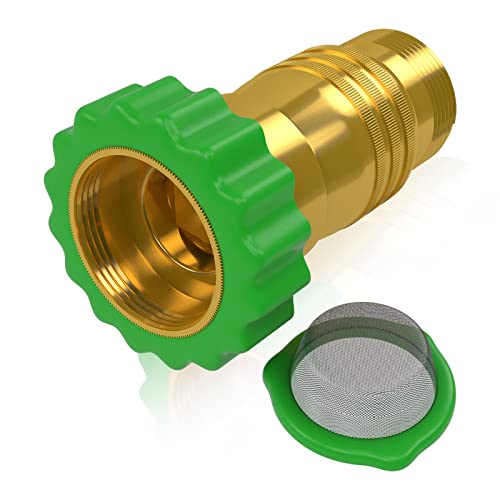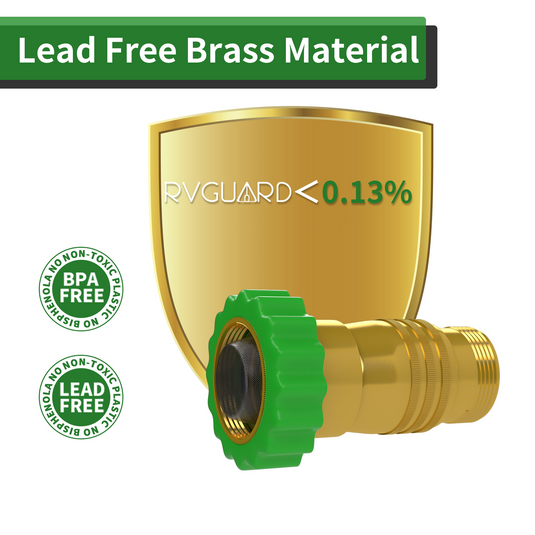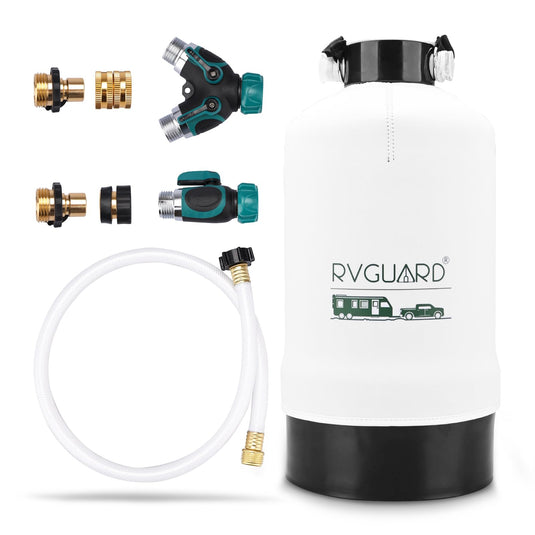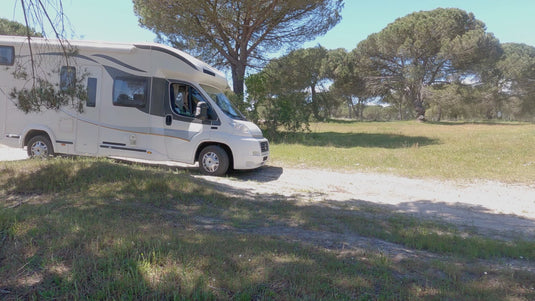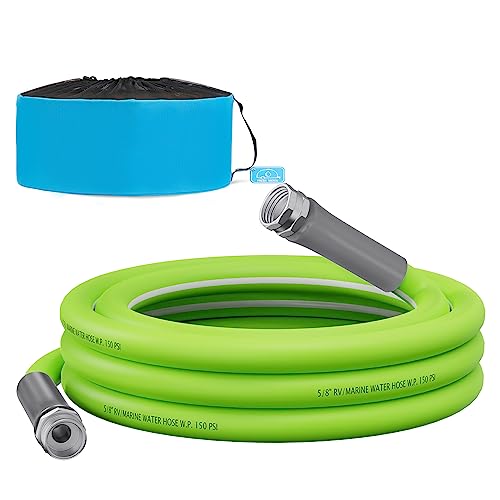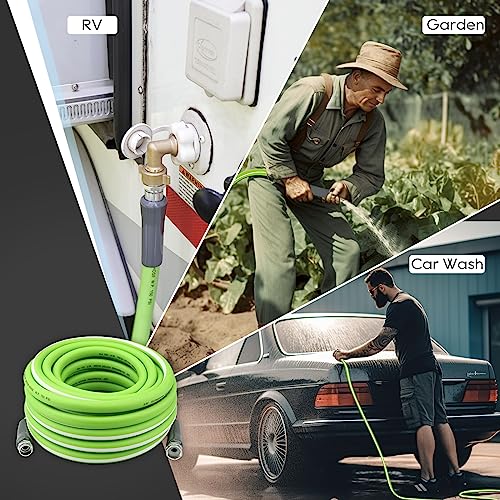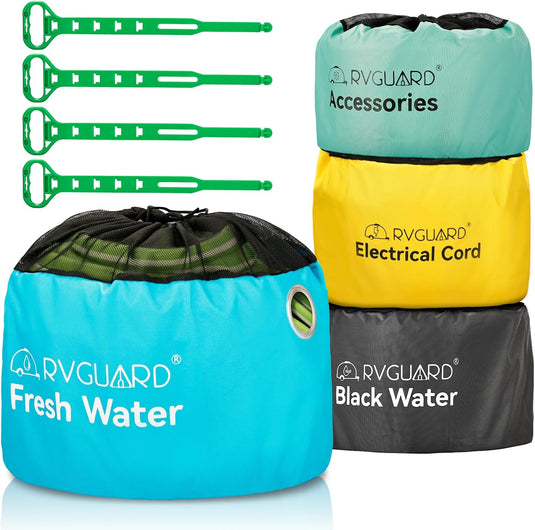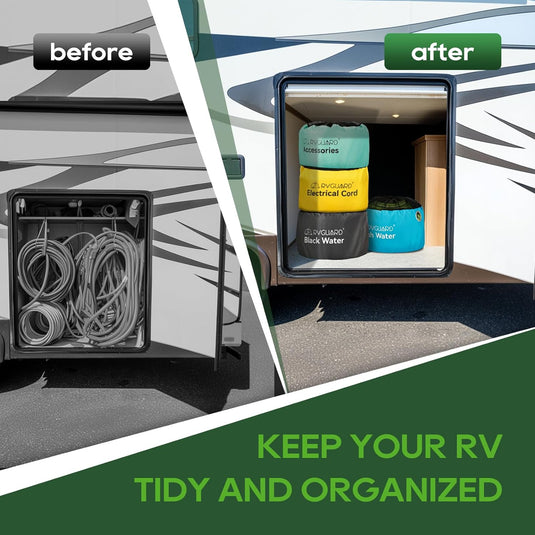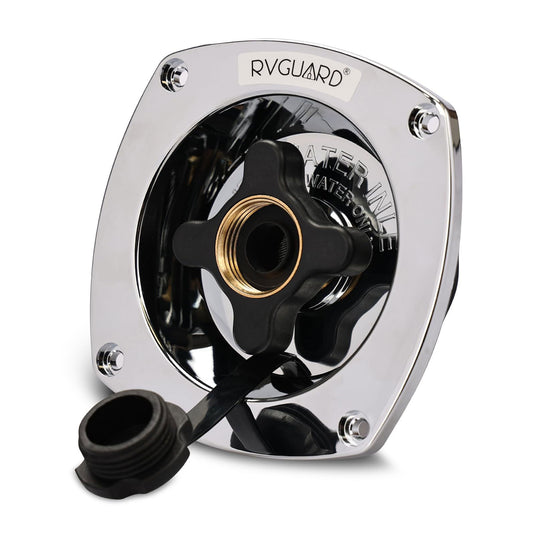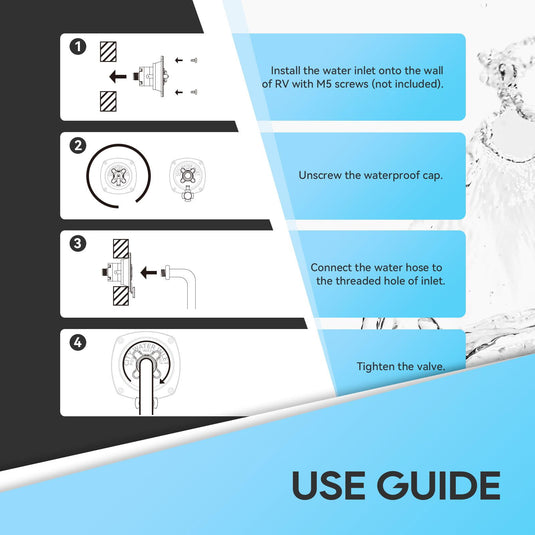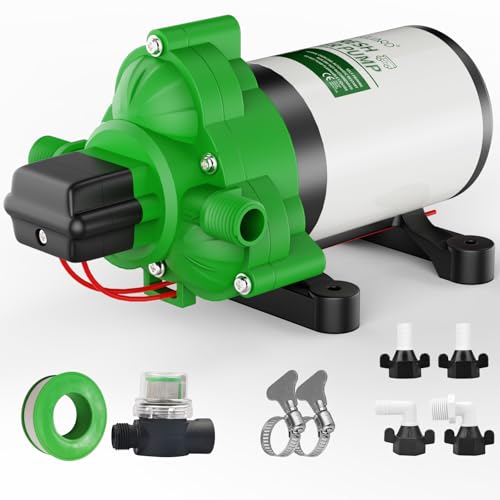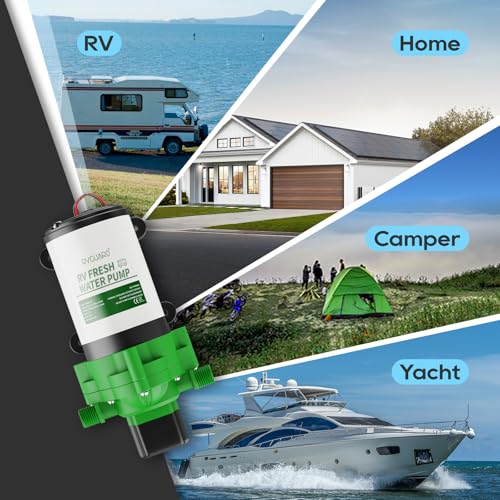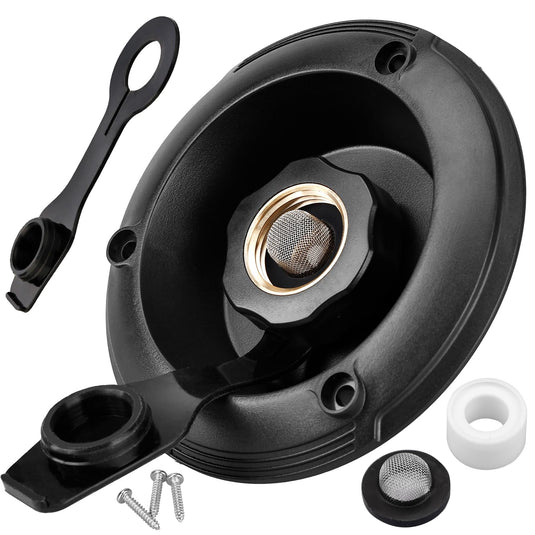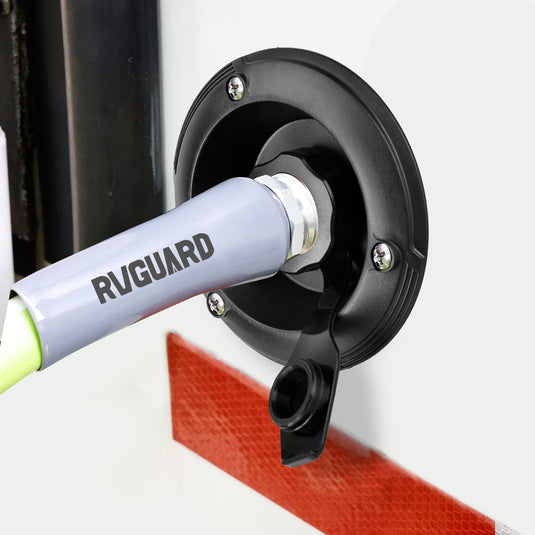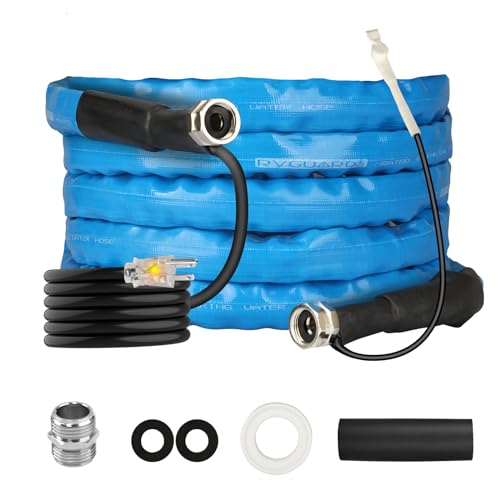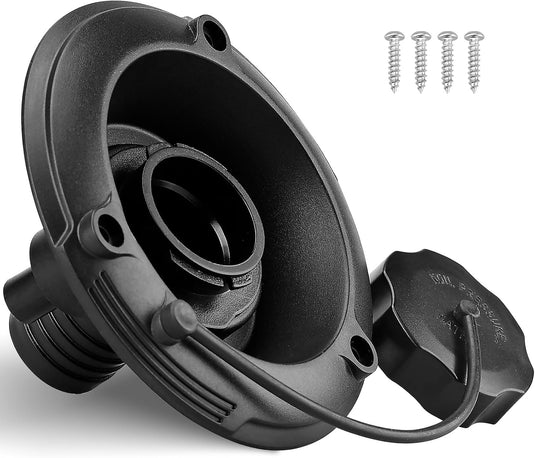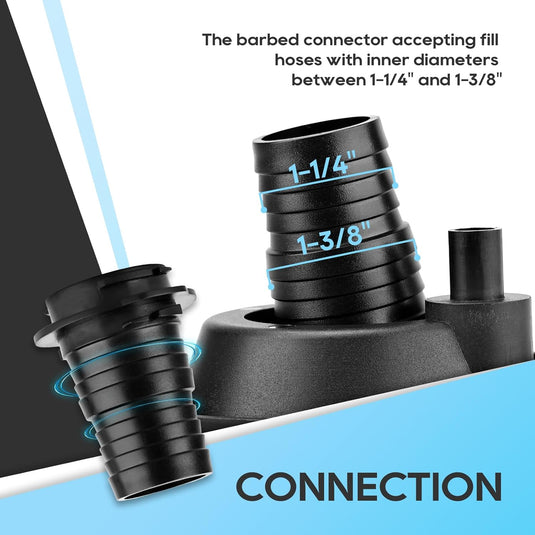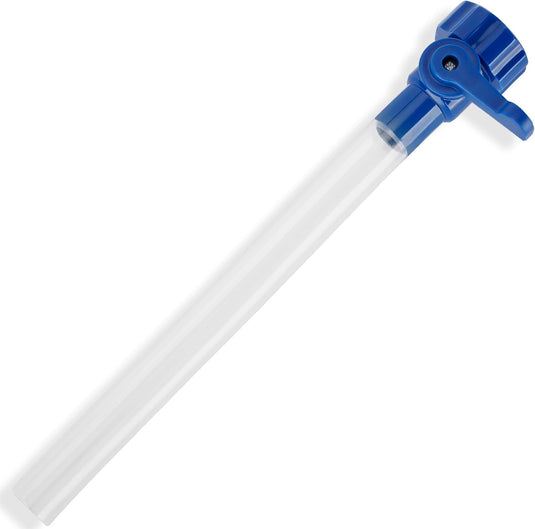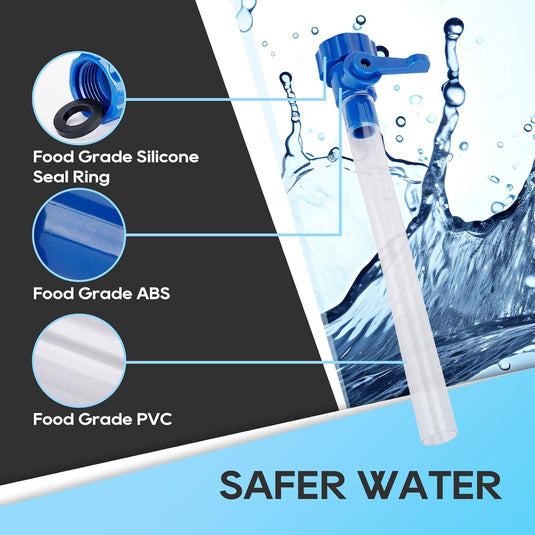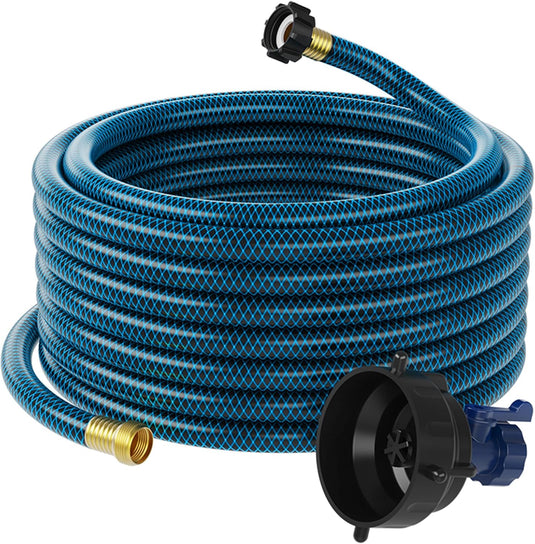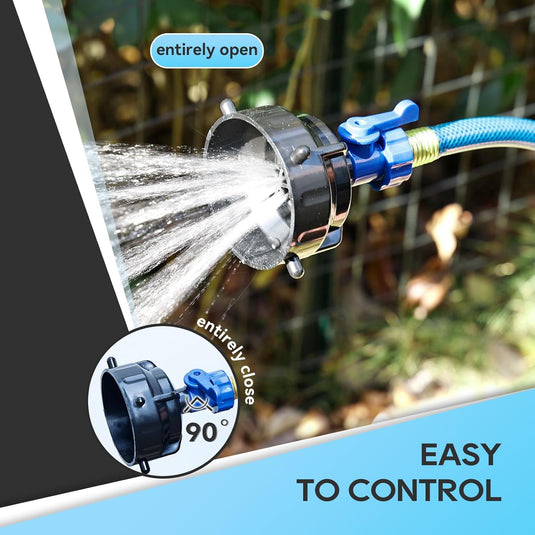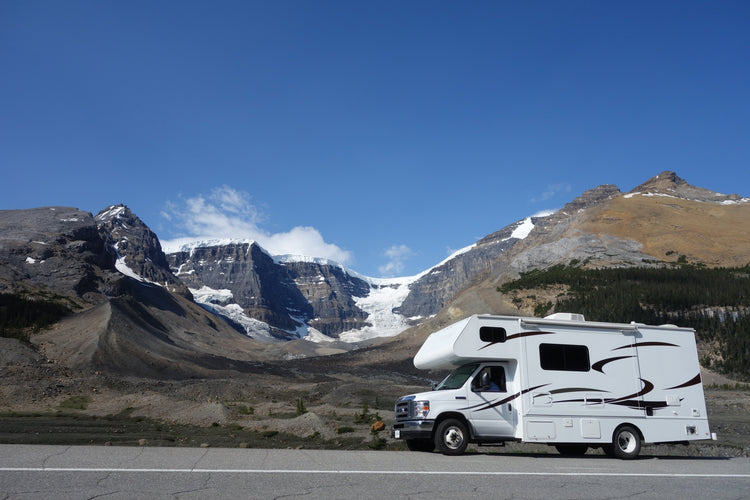
Winterizing Your RV: Essential Gear Recommendation
Most campgrounds in the U.S. are north of the frost line and as early as October, temperatures always drop below freezing, which puts the hardiness of RV accessories to the test. Water systems are even more challenged to overcome freezing; after a night of cold temperatures, hoses can easily be damaged by water freezing and expanding, which can be deadly outdoors if you don't have any spare hoses with you.
RVers have taken a number of approaches to freeze-proofing their water hoses.
-Useing non-toxic antifreeze
-Disconnecting the water supply at night
-Installing insulation for water hose
These methods may work in the short term, but not only are they inefficient and time-consuming, they don't always keep the pipes from freezing, so they're not a long-term solution for experienced RVers.
After Winterizing Your RV: The Crucial Role of Heated Water Hoses, RVGUARD interviewed a number of experienced RVers we found that heating water hoses is one of their winterizing necessities.
Will a Heated RV Water Hose Keep Hoses from Freezing?
A heated rv water hose can effectively keep RV hoses from freezing. By maintaining a consistent temperature above freezing, the heated rv water hose protects your water supply line and prevents ice formation within the hose and connected hoses. With freeze protection down to -20°F (-28°C), the RVGUARD heated water hose is particularly reliable for winter use, ensuring that you have access to water whenever you need it.The following video will show you how to use it.
How Does a Heated Water Hose Work?
Heated water hoses are designed with built-in heating elements that prevent water from freezing inside the hose. The RVGUARD heated water hose uses a smart energy-saving thermostat that activates the heating element when the temperature drops. Specifically, it turns on at approximately 47°F (8°C) and turns off at around 60°F (15°C). This functionality ensures that the water remains flowing and accessible, making it ideal for winter camping or in cold climates.

The hose is constructed with a five-layer design, combining durability with insulation. The heavy-duty heating cable, rated at 7 watts per foot, enhances efficiency, allowing the hose to maintain a stable temperature even in extreme conditions.If you need a heated water hose or other winterization kit, click here.
Can You Leave a Heated Water Hose On All the Time?
While it’s generally safe to leave a heated water hose connected, it's essential to consider a few factors. The smart thermostat of the RVGUARD hose automatically turns the heating element on and off based on ambient temperatures, making it energy-efficient. However, if temperatures remain consistently below freezing for extended periods, it’s wise to monitor the hose for any signs of wear or damage.
Moreover, ensure that the hose is used as intended—connecting it to a reliable power source and checking for proper insulation to maximize its effectiveness. Continuous use in extreme conditions should be accompanied by regular checks to ensure safety and functionality.
At What Temperature Does a Heated Water Hose Work?
The RVGUARD heated water hose is equipped with a smart energy-saving thermostat that activates the heating element at approximately 47°F (8°C). This feature is crucial for preventing freezing in environments where temperatures fluctuate. The hose will automatically turn off the heating when temperatures rise to around 60°F (15°C), ensuring energy efficiency while providing reliable freeze protection.Based on the operating temperature range of the heated water hose, the heated water hose can be used not only for RV but also for other indoor and outdoor scenarios.

Maintenance Tips for Heated Water Hoses
To ensure the longevity and effectiveness of your heated water hose, regular maintenance is essential. Start by inspecting the hose for signs of wear or damage, such as cracks or leaks. After each use, clean the exterior with mild soap and water, avoiding harsh chemicals. Store the hose in a cool, dry place, and make sure to prevent kinks or twists that could harm the heating element. Keep it away from direct heat sources and use compatible adapters to avoid strain on connections. Finally, always follow the manufacturer’s guidelines for care and check the power supply regularly. By taking these steps, you can ensure your heated water hose remains reliable in cold weather.
Conclusion
Investing in a heated water hose is an excellent decision for RV enthusiasts who wish to enjoy outdoor adventures year-round. With features like smart thermostats, durable construction, and effective freeze protection, hoses like the RVGUARD heated water hose provide convenience and peace of mind during the colder months. Whether you're camping, maintaining your home, or caring for your garden, a heated water hose is a practical solution for ensuring a steady supply of safe drinking water, even in the harshest of winter conditions.If you have any questions about heated water hoses, please contact us via support@rvguardstore.com or online chat.
New Customer Exclusive: Use code RG10 at checkout for 10% off your first order.
Or click above to browse qualifying products!
Don’t Miss Out on Tips & Deals.
Be the first to know.


